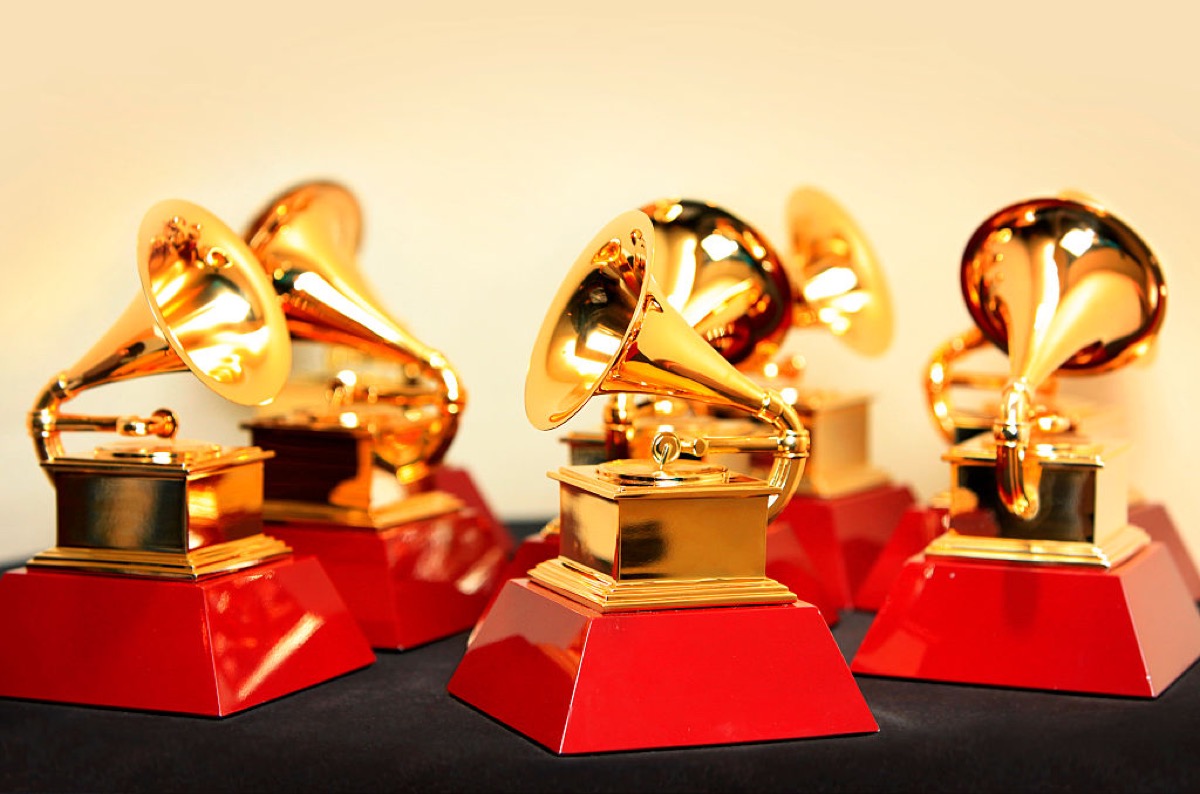Unauthorized AI Song Using Drake and The Weeknd’s Voices Submitted for Grammy
Yelp.

“I came in with my ex, like Selena to flex (Aye) / Bumpin’ Justin Bieber, the fever ain’t left (Aye) / She know what need, yeah, Anita she blessed (Aye) / Givin’ you my best (Aye)” raps Drake on the viral TikTok song “Heart on My Sleeve”—only it isn’t Drake. Instead, it’s an AI generation of his vocals.
Now, that AI song has been submitted for a Grammy.
The track, which was removed from music platforms earlier this year, has been submitted for nominations in the Best Rap Song and Song of the Year categories. It was created by someone known simply as Ghostwriter. The creator has stayed largely silent, but according to The New York Times, they have been meeting with record labels, artists, and music platforms in disguise to discuss how to best harness AI in the music industry.
In a statement to the publication, Ghostwriter said that “Heart on My Sleeve” and other songs they have created were original compositions and were “written and recorded by humans” who tried to match the artists’ delivery, tone, and phrasing before using AI technology to generate the voice.
In the past, the creator has reached out to those whose vocal likeness they have used, saying, “The future of music is here. Artists now have the ability to let their voice work for them without lifting a finger. If you’re down to put it out, I will clearly label it as A.I., and I’ll direct royalties to you. Respect either way.”
Oh, and the chief executive of the Recording Academy thinks that this is fine. Harvey Mason Jr. explained in an interview, “As far as the creative side, it’s absolutely eligible because it was written by a human,” but said that in the Grammy’s rules, a song must have “general distribution,” meaning that it must be “available nationwide via brick-and-mortar stores, third-party online retailers and/or streaming services.”
He also said that when AI started to be used in this way, he did question it: “I knew right away as soon as I heard that record [‘Heart on My Sleeve’] that it was going to be something that we had to grapple with from an Academy standpoint, but also from a music community and industry standpoint. When you start seeing A.I. involved in something so creative and so cool, relevant and of-the-moment, it immediately starts you thinking, ‘OK, where is this going? How is this going to affect creativity? What’s the business implication for monetization?’”
Universal Music Group has previously asked streaming services like Spotify and Apple Music to prevent AI companies from accessing their intellectual property. In a statement, they said, “We have a moral and commercial responsibility to our artists to work to prevent the unauthorized use of their music and to stop platforms from ingesting content that violates the rights of artists and other creators. We expect our platform partners will want to prevent their services from being used in ways that harm artists.”
As a huge music lover, I think having Toad from Super Mario sing Sean Paul’s “Temperature” or Plankton from SpongeBob sing Rhianna’s “Diamonds” is funny and those videos are, in effect, harmless. But when it comes to musicians having their voice likeness used in this sort of way, I’m not a big fan, especially when the literal president of the Recording Academy seems to think it’s okay for them to be up for awards. I have no doubt that neither The Weeknd nor Drake was consulted, mainly because Drake has spoken out against his voice being used for AI, even when it comes to “covers.” When his vocal likeness was used for a cover of Ice Spice’s “Munch,” he took to his Instagram Stories to make it clear that he did not appreciate it, writing, “This is the final straw AI.”
It looks like the future of music might be going down the drain as AI makes a—let’s face it—scary advancement, but I should like to think Drake and The Weeknd won’t take this lying down and that there will be a lot of legal issues and battles in the industry’s future.
(featured image: Kurt Krieger – Corbis/Contributor/Getty Images)
Have a tip we should know? [email protected]
